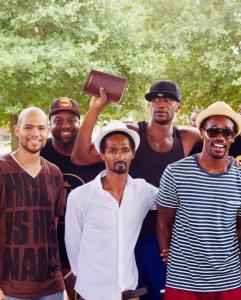Clarifying the facts about Christianity required someone with credibility and authority, and the person for the job was named John. With terse and harsh language John combats alternative teachers and their falsehoods, calling them Antichrists (1 John 2:18, 2:22, 4:3), Liars (2:22), Deceivers (2:26, 3:7), and False Prophets (4:1).
John’s passion throughout the letter is motivated by his deep love for Jesus and Jesus’ people, the church. In the history of the world, likely no one has known Jesus better or loved Jesus more than John. He was the youngest of Jesus’ disciples, a guy privileged to be called by him and appointed as an apostle (Matthew 4:18-25; Mark 3:13-19). John was among the inner circle of the three disciples closest to Jesus and therefore privy to teaching and experiences with Jesus that others missed. John not only prepared the Last Supper (Luke 22:7-22) but also sat in the seat of friendship next to Jesus and asked the Lord who would betray him (John 13:23-26). Following the Last Supper John saw Jesus weeping and sweating blood in the garden of Gethsemane (Matthew 26:36-46), and he followed Jesus to His trials (John 18:15-18). John stood at the foot of Jesus’ cross and watched his suffering (John 19:16-27) and was appointed by Jesus to care for His mother, Mary (John 19:25-27). Three days after Jesus death, John was the first person to enter His empty tomb (John 20:1-9), and shortly after was the first person to recognize Jesus after He rose from death (John 21:1-14). Later he stood gazing into the sky as Jesus ascended into heaven (Acts 1:1-11). John was with Jesus at all times as a witness to His life and ministry.
John carried on the ministry of Jesus with faithful and courageous devotion, leading the church through its early seasons of struggle, persecution, sin and heresy. Even when every other apostle had been martyred, John continued to lead the early church and train its next generation of pastors. According to historical sources outside the Bible, an attempt was made to murder John by boiling him alive, but he somehow survived. John was then exiled to the remote Island of Patmos, where on a sad Sunday sitting by himself Pastor John was visited by Jesus, who came down from heaven in all of His glory to lovingly encourage His dear friend (Revelation 1:9-20). John eventually returned to Ephesus and continued his ministry. Church history records that when he was too old and feeble to preach or even stand John had himself carried into the church and with a feeble voice simply articulated the heart that Jesus had for all of His followers saying, “Little children, love one another.”
This is simply the heart of 1 John. After all that John went through with and for his great God and dear friend Jesus, he was not going to allow false teachers to confuse the new Christians who looked to him as pastor. John wrote a loving letter to primarily younger and newer Christians with the tone of a grandpa who continually refers to them—and us—as “my dear children.”
John states the purpose of his letter is to define who is and who is not a Christian. He says “I have written this to you who believe in the name of the Son of God, so that you may know you have eternal life” (1 John 5:13 NLT). His letter breaks down into three categories that help determine if you are a Christian. His categories demonstrate in a straightforward way that you cannot become a Christian without experiencing a transformation in how you think theologically, how you act morally, and how you relate socially. These are tests to see if someone is in fact a Christian.












